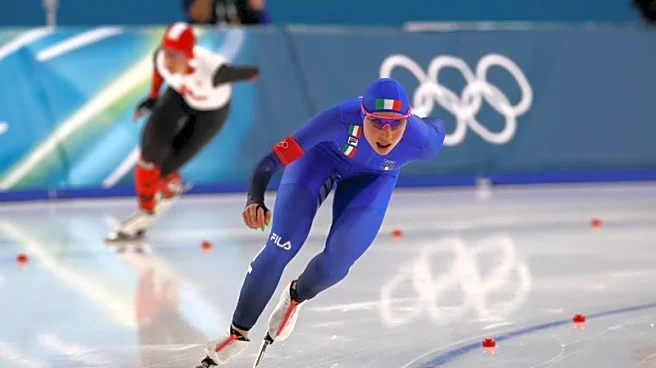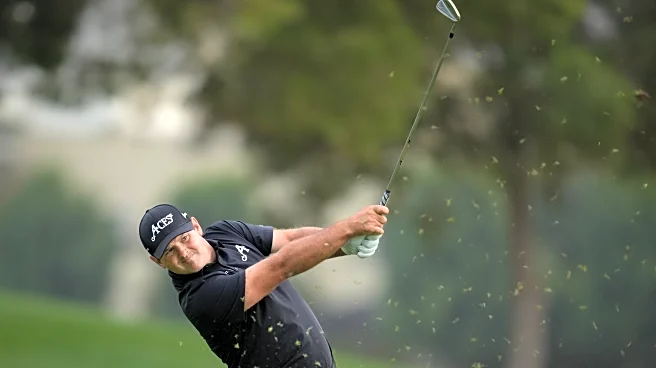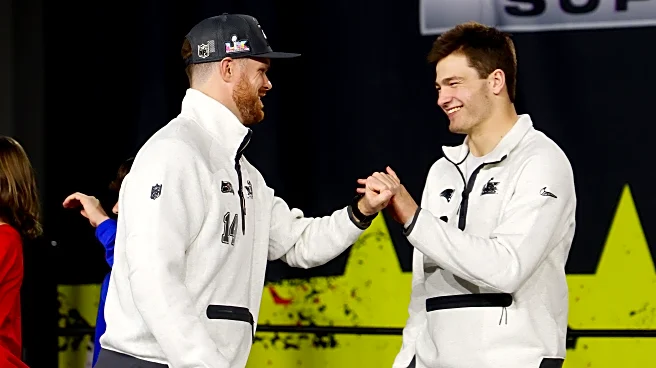What's Happening?
Barcelona forward Lamine Yamal has withdrawn from the Spain national team ahead of their World Cup qualifier against Georgia due to an injury. Yamal is suffering from pubalgia, a condition similar to a sports hernia, which has been affecting his performance
for some time. The decision to withdraw was made after Yamal underwent a radiofrequency treatment recommended by Belgian doctor Ernest Schilders. The Spanish Football Association expressed frustration over the timing of the treatment and Yamal's subsequent withdrawal, stating they were not informed until after the national team camp had started. Spain's coach, Luis de la Fuente, initially criticized the situation but later emphasized the importance of maintaining good relationships with clubs.
Why It's Important?
The withdrawal of Lamine Yamal from the Spain squad highlights the ongoing challenges faced by young athletes dealing with injuries. This situation underscores the tension between club and national team priorities, especially when it comes to player health management. The Spanish FA's displeasure with Barcelona's handling of Yamal's treatment reflects broader issues in sports management, where communication and coordination between clubs and national teams are crucial. The incident could influence future protocols for player injury management and treatment timing, potentially affecting how clubs and national teams collaborate on player health.
What's Next?
Spain will proceed with their World Cup qualifier against Georgia without Yamal, focusing on securing their spot in the 2026 FIFA World Cup. The Spanish FA and Barcelona may need to address their communication issues to prevent similar situations in the future. Yamal's recovery will be closely monitored, and his return to play will depend on his progress in managing the injury. The situation may prompt discussions on improving transparency and cooperation between clubs and national teams regarding player health and treatment decisions.
Beyond the Headlines
This incident raises questions about the ethical considerations in sports medicine, particularly regarding the timing and disclosure of treatments. It also highlights the cultural expectations placed on young athletes to perform despite injuries, which can have long-term implications for their careers. The case of Yamal may lead to increased scrutiny on how clubs and national teams handle player injuries, potentially influencing policy changes in sports health management.
















